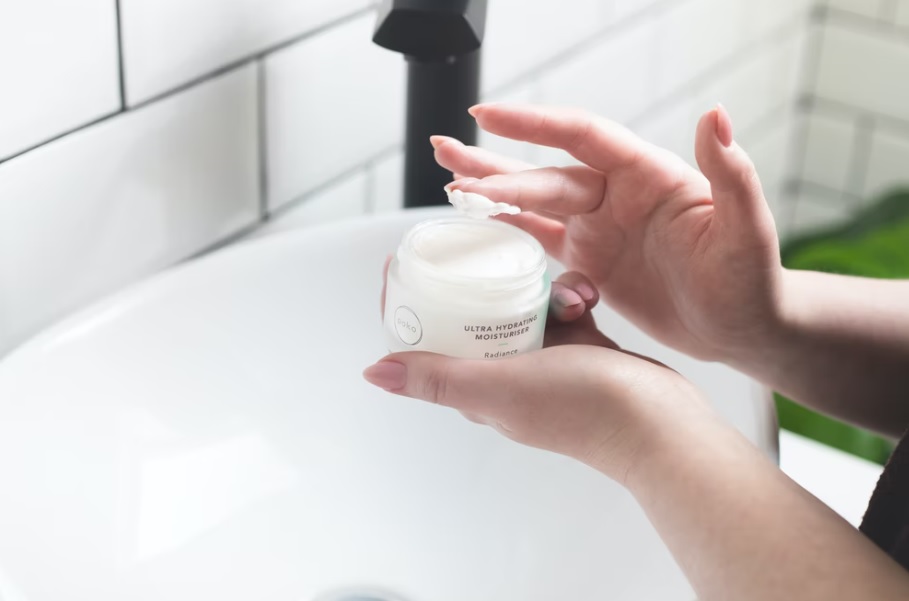Acne occurs when your hair follicles become clogged with sebum and dead skin cells. It can affect people of all ages, but it is most common in adolescence.
There are several factors that can contribute to the development of acne, including genetics, hormones, and diet. Regardless of the cause, acne can be a frustrating and embarrassing condition.
The good news is that there are many options for acne treatment in Singapore. With the help of a dermatologist, it is possible to find out more how you can control acne and even better; achieve clear skin.
When should you get Acne Medication?
If you have acne, it can go away, but it is unlikely that it will just go away on its own without some form of treatment. While some people may find that their acne clears up spontaneously after a few years, others will struggle with it for decades.
In fact, acne is the eighth most common disease in the world. If you’ve had acne for some time, you could be wondering if it’s time you start acne medications.
If that’s the issue, please note that there are instances that may make you want to wait. For example, if you are pregnant or breastfeeding, or if your acne is mild and doesn’t seem to be getting any worse, you may want to hold off on treatment.
However, if your acne is severe or persistent, it’s time to seek medical advice. Here are a few telltale signs that you should start acne medications:
If your acne is making you feel self-conscious or unhappy about the way that you look
There are many reasons you might choose to seek acne treatment in Singapore, whether it is mild or severe. For many people, having acne can lead to feelings of self-consciousness and low self-esteem.
This may manifest itself in negative thoughts about your appearance, making you feel uncomfortable in social situations or at work, or impacting your ability to form strong relationships. Additionally, if your acne causes physical pain or discomfort, you may also benefit from seeking treatment.
This could involve prescribing medication that reduces the redness, irritation, and inflammation caused by the condition. Ultimately, regardless of the specific reason that you are seeking treatment for your acne, there are many benefits to doing so. So if your acne is making you unhappy or self-conscious, then it is certainly worth considering a visit to a dermatologist.

If your acne is causing pain or discomfort
Unfortunately, many people with acne experience physical symptoms in addition to emotional and mental ones. For example, acne can cause painful cysts and nodules called papules.
These may also cause physical discomfort, including itching or soreness. If your acne is causing you pain, it’s important to seek medical treatment to get relief as soon as possible.
If your acne doesn’t improve and only seems to be getting worse
If your acne seems to be worsening despite home or over-the-counter treatments, it’s time to see your dermatologist. Seeking professional help early on can prevent the condition from becoming more severe and long-lasting in the long run.
There are several different treatments available depending on the severity of your acne, so it is essential to get an accurate diagnosis as soon as possible. Whether you opt for topical medications or oral therapy, there is a treatment out there that can help you achieve clear, healthy skin.
Can you as Well Just Let Acne run its Course?
If you’re suffering from acne, don’t simply let it run its course. Untreated acne can lead to several serious problems, including emotional stress, low self-esteem, permanent scarring, and other physical complications.
It’s important to seek treatment as soon as possible to avoid these negative consequences and maintain your overall well-being. Whether you decide on a topical cream or more advanced options for acne treatment in Singapore like laser therapy or chemical peels, seeking help early on is key to achieving clear skin and greater confidence in the long run.
What are some of the Potential Treatments for Acne?
There are many different treatments available for acne, depending on your individual needs and the severity of your condition. Some of the most common treatments include topical creams, oral medications, and chemical peels or laser therapy.
Topical creams may be used at home to treat mild cases of acne. These creams contain anti-bacterial agents that can help prevent breakouts by eliminating the bacteria that contribute to their development.
Oral medications are often prescribed for more severe or persistent acne and may be combined with topical treatments or other therapies like chemical peels or laser therapy. If you have severe acne, it’s vital to seek professional help and discuss all of your treatment options with your dermatologist.
Whatever the severity of your condition, it’s important to remember that there is a treatment available for you. So talk to your doctor today about getting the relief you deserve from your acne and reclaiming clear, healthy skin.
What Questions will Dermatologists Ask About Your Acne?
When you visit your dermatologist for acne treatment in Singapore, they will ask you a number of questions about your condition. This is to help them determine the cause of your acne and suggest an appropriate treatment regimen. They may ask:
- When did you first notice the development of acne?
- How severe is your acne?
- What areas of your skin are affected by acne?
- Do you have any other medical conditions?
- Are you currently taking any medications?
- Do you use any skincare products on your skin?
By asking questions like these, your dermatologist can get a better picture of the underlying cause of your acne and develop an effective treatment plan that addresses all of your needs. So don’t be afraid to speak up and share your concerns – it’s important to get the help you need to achieve clear, healthy skin.
Final Thoughts
Generally, you should start acne medication as soon as you notice the development of acne. You do not want to let your acne go untreated, as this can lead to a number of severe complications, including emotional stress, low self-esteem, permanent scarring, and more. Talk to an experienced skin doctor if you’re unsure about what treatment is best for you.
